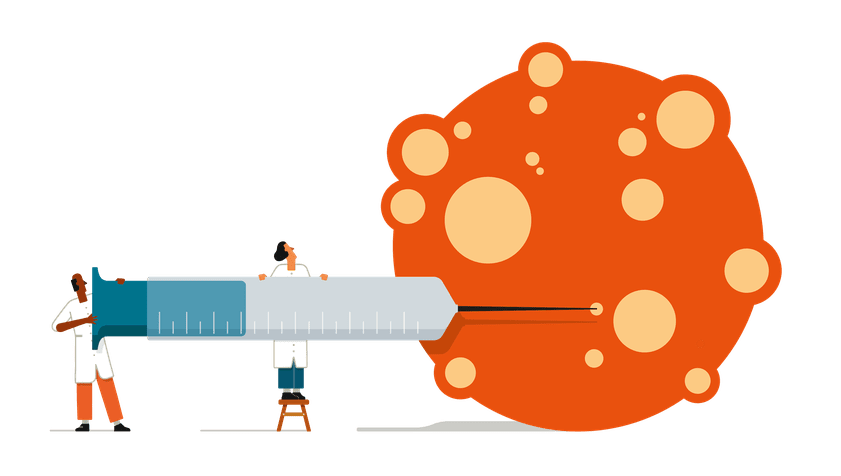result




TRANSLATIONAL RESEARCH
The Potential of Personalized Medicine
The Potential of Personalized Medicine

Cancer vaccine enters preclinical tRials
For people to stay healthy, their immune systems must recognize and destroy cells that could become cancerous. However, when a malignant cancer evades the immune system, it can take hold and grow, marking the beginning of a difficult health journey.
A promising new therapy is on the horizon to improve patient care and health outcomes: personalized mRNA cancer vaccines. “We’re in a unique position to do something transformative for our patients,” says Dr. John P. Cooke, the Joseph C. “Rusty” Walter and Carole Walter Looke Presidential Distinguished Chair in Cardiovascular Disease Research.
With a generous gift from Denise and David Baggett and ample resources buoyed by the Ann Kimball and John W. Johnson Center for Cellular Therapeutics, Dr. Cooke has organized a multi-disciplinary research team to create a personalized vaccine that will help a patient’s immune system recognize and destroy cancer. Like COVID-19 vaccines, personalized cancer vaccines will use messenger RNA, or mRNA, to trigger an immune system response. For cancer patients, mRNA vaccines will target specific cancer cells without destroying the healthy cells.
“What scientists developed with mRNA vaccines in a relatively short period of time to fight COVID-19 was nothing short of astonishing,” says Denise. “The pandemic showed how successful these vaccines can be.”
“And with personalized vaccines for cancer, we saw the opportunity to play a small part in advancing a novel therapy to help patients,” adds David.
Every patient — and every tumor — is different. When a tumor recurs, it has evolved to survive. With cancer vaccines, scientists can personalize therapies quickly to respond to tumor evolution.
The multidisciplinary team includes Drs. Jenny C. Chang and Ming You and researchers Chih-Chi Andrew Hu , PhD, Francesca Taraballi, PhD, and Jimmy D. Gollihar, PhD. To create the vaccine, surgeons remove the patient’s primary tumor. The team sequences the tumor to determine what genes have mutated and which mutant proteins, or cancer antigens, are expressed on the surface of the cancer cells.
Knowing the proteins’ sequence will allow the team to generate mRNA code within days and a vaccine within weeks. “Speed is of the essence in cancer treatments,” says David. “These vaccines have the potential to be timely, less expensive and more effective than traditional cancer treatments.”
Once developed, the vaccine will target the tumor’s mutant proteins. Composed of mRNA that encodes these purified cancer antigens, the vaccine will induce an inflammatory response that awakens the immune system to make antibodies and generate white blood cells — specifically T cells — to attack the cancer. After vaccination, researchers will analyze patients’ blood samples to determine the vaccine’s efficacy. In the long term, the researchers will monitor any recurrence of the primary tumor and determine if a booster shot is needed.
“We’re moving quickly to get this project going, and our team is working around the clock to develop this approach because it’s such meaningful work,” says Dr. Cooke. Preliminary studies are underway, and early data should be available in 2023.
“It takes special people like the Baggetts to give their time and to donate financially to do good for the community,” says Dr. Cooke. “Without that kind of support, it would be much harder for us to do this transformative work.”
Discover More

